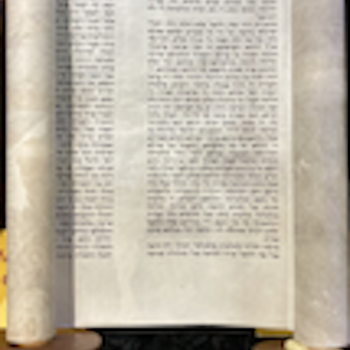The New Testament is equally explicit: "Pure and unstained religion before God and the Father is this: to visit orphans and widows in their affliction, to keep oneself unspotted from the world" (James 1:27; my translation).
The texts of Judaism and Christianity agree: we cannot be faithful to God if we do not live just lives.
At a time like this, that standard for our faithfulness is especially important. If we understand the current election simply in terms of how to bring our party to victory, or in terms of whom we like and dislike (whether our social, religious, or racial friends, or any other such groups), then we will fail to be just. If we think that insisting that it is our way or no way when it comes to government policies and programs, then we will almost certainly be unjust in the end. Unless many of us change the way we think about politics, after this election, regardless of who wins, we will have failed to be faithful because we will have failed to be just.
It would be difficult to argue that the present situation of the United States is, overall, one in which justice prevails. We are not just to immigrants, legal or otherwise. We are often unjust to those in poverty. We are not just to those who need health care that is readily available but who, through no fault of their own, cannot buy it.
We are not just to women, particularly not to those who are single parents. We are not just to Native Americans and other minorities. We are unjust to the large numbers of African American men we have incarcerated though alternatives to incarceration would have served both them as individuals and the nation at large better. We are in the process of unjustly saddling our children and grandchildren with a financial crisis caused by debt. The list could easily be extended.
We may sincerely disagree about the best government policies for bringing about justice. I'm not arguing that this or that party holds the key to justice in America. That would be foolish.
Those disagreements about how we are most likely to make our nation more just are about important things. So it ought not to be surprising if, when we talk with those who see things differently, we and they become passionate. Nor would it be surprising if we fear that some ways of dealing with our current problems will make things worse rather than better.
Passion and reasonable fear have legitimate places in working things out politically, though the emotions that often accompany them, like anger and hatred, do not. As George Albert Smith, eighth president of the LDS Church, said, "Whenever your politics cause you to speak unkindly of your brethren, know this, that you are upon dangerous ground." (I assume that the word brethren can here be construed to mean "any other person.")
As Christians, even when we disagree we must be sure that what we are really seeking with politics will, in the end, make justice more likely. Fidelity to God requires more than living our religion narrowly defined. Faithfulness requires that we strive to live in a just world and to create one beyond the confines of our congregations. The justice we strive for must surely be informed by our faith and faithfulness, but we cannot forget that our faithfulness is measured by our justice.





